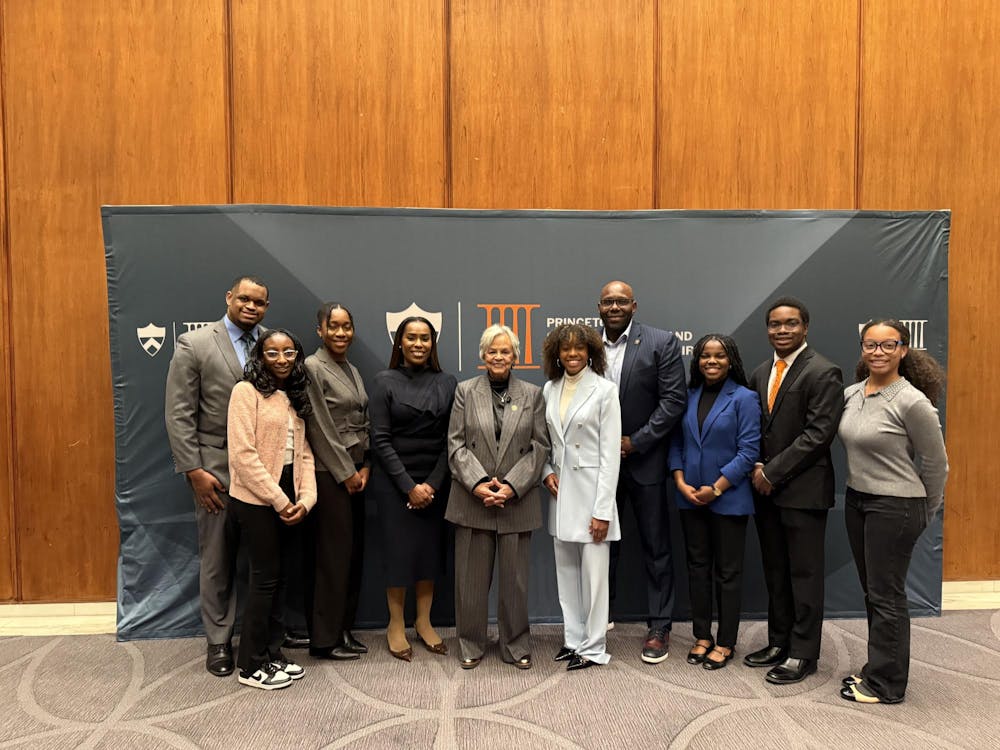Barbara Hatch Rosenberg is the proponent of a new conspiracy theory. Rosenberg, a molecular biologist leading an independent investigation into last fall's anthrax attacks on behalf of the Federation of American Scientists, said in a speech yesterday that many U.S. government insiders agree on one likely perpetrator whom they believe is responsible for the attacks.
But according to Rosenberg, the government may not want to prosecute this person because he is a government insider. Taking this insider to court might require making aspects of America's secret bioweapons program public.
In her speech, Rosenberg reviewed a wide variety of evidence to piece together a portrait of the likely perpetrator. She said that all signs suggest the person is an anthrax expert who had access to a U.S. government strain of the anthrax virus — known as the "Ames" strain — which was used in all five of the anthrax letters. She said this person used a classified process to make the anthrax spores float more easily in the air. This process, believed to be more advanced than any known to the Russian or Iraqi bioweapons programs, would only be accessible to someone who had worked for the U.S. program, Rosenberg said.
The anthrax used in several of the letters had been carefully milled into spores of two to five microns in length, which are desirable because they have the best chance of being inhaled deeply into the lungs. Top government experts believe that the person who prepared this powder must have had a great deal of experience preparing anthrax, Rosenberg said. She explained that the powder used in the letters "was not [the perpetrator's] first batch."
She said this person must have a current anthrax vaccination in order to be able to survive working with the organism. The letters have not contained any fingerprints or DNA material, which Rosenberg said suggests that the individual is an expert at covering his tracks.
"Many government insiders agree on one likely perpetrator, whom the FBI has questioned more than once," Rosenberg said. The Bureau has known about this individual since October, she added.
Rosenberg noted that the U.S. government may not want to prosecute the sender of the anthrax letters publicly, because doing so might force government officials to reveal the extent of the U.S. bioweapons program.
After the anthrax attacks began last fall, U.S. officials revealed that American military researchers — as well as outside contractors working for the Pentagon — have long been researching anthrax. Experts say the government's research activity is prohibited by a 1972 biological weapons convention.

Public statements by defectors from the former Soviet Union revealed years ago that the Soviets, and now the Russians, never stopped developing biological weapons, even though the Soviet Union signed the treaty along with the United States. Because the treaty has no enforcement provision, it is notoriously ineffective at curtailing the spread of biological weapons.
Rosenberg said she objects to President Bush's recently announced budget, which precipitously increases funding for anthrax-related research. She explained that the new funding will bring more researchers and more labs into contact with anthrax.
"By spreading around this knowledge, and this access, we're asking for trouble," she noted, stressing that the recent attacks were probably launched by a veteran government researcher.
Rosenberg said she thinks further development of biological weapons will "have no benefit in terms of public protection" and said she hopes that "our government will see the light and agree to a legally binding treaty" prohibiting further development of such weapons.








